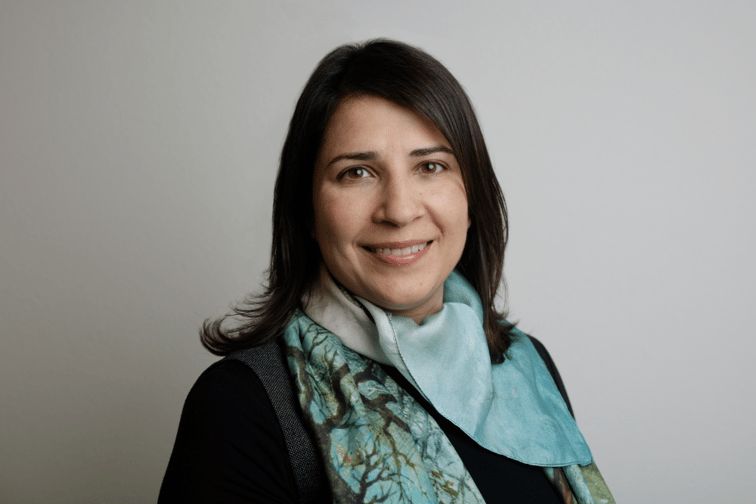

As head of sustainability for commercial insurance and group underwriting at Zurich Insurance Group, Gabrielle Durisch (pictured) has had a front-row seat to how conversations around ESG risks have changed in recent years. When she compares the discussions she holds with clients today to those she had when she took up her role two years ago, she said, it’s easy to see the uplift in momentum and engagement around sustainability.
Read more: Zurich introduces low-carbon investment fund
“My role is [around] translating the group sustainability strategy into how we work with our customers, and how we meet the commitments we’ve made on the underwriting side,” she said. “So where we have signed up for net-zero in our underwriting portfolio, how do we track that, measure it and report it? And where we’re talking about accompanying our customers through the transition, how do we actually do that in practice?”
That’s not just focusing on the ‘E’ of ESG, she said, but on all aspects of sustainability – and the areas applicable to each individual client often depend on the industries they operate in. As such, it is a role that requires a very high level of understanding of the sustainability metrics pertaining to each industry, for each customer, to develop solutions that support them in achieving their ambitions.
Though ESG is about so much more than just the environment, the ‘E’ piece has understandably been the focus for businesses in the last few years, given the attention environmental concerns receive from governments, regulators and the media. Given the urgency of the issue, Zurich strengthened its thermal coal policy in 2019, she said, pledging to engage with and potentially exit customers exceeding certain limits around thermal coal, oil sands and oil shale.
Zurich’s early-established approach of engaging with customers, and understanding how they were changing their businesses and the steps they were taking to reduce their reliance on thermal coal was quite successful, she said. And so Zurich extended that to look at all its carbon-intensive customers and, in doing so, recognised that the key to a successful transition is that engagement piece.
“Rather than just assessing companies and looking externally and making assumptions and assessments, it’s about engaging and understanding what they’re going to do and the things that are important to them - and making sure that we are there to help them transition rather than just walking away,” she said. “Because ultimately, they would most likely find another insurer, but we feel we are in a stronger position if we stay with them and work with them [through their transition journey].”
It’s a way of doing business that ties in closely with Durisch’s own ethos, as she finds directly engaging with people and working collaboratively with them to solve a problem is much more beneficial than skirting around the issue. And people appreciate that honesty and upfront approach to problem-solving, she said, they appreciate being given the opportunity to work together.
As more clients become aware of Zurich’s work and commitments around sustainability, they are increasingly reaching out to the insurer for information and guidance on the subject. Some customers whom the insurer has not yet engaged with are getting in contact early, she said, as they’re keen to understand what is happening in the space and what it might mean for their businesses.
“I think there’s a level of discomfort around what is going to happen - whether we’re suddenly going to make a statement that we’re going to exit certain businesses, but we’re not going to do that,” she said. “The key is being transparent and engaging.
“[…] This is a vast topic and changing all the time. And really the only way we can address what needs to be addressed is through working together. No one company can do it on its own. It doesn’t matter if we reduce our emissions if nobody else does, or if we stop insuring certain things and others are still insuring it. We need to make sure everybody is taking the right steps to achieve what we’re setting out to achieve.”
Read more: Major names form Net-Zero Insurance Alliance
It is in this spirit of collaboration that the Net-Zero Insurance Alliance (NZIA) came alive – launched in July 2021 by eight founding members. NZIA is an industry-wide collaboration that now includes over 20 leading insurers representing more than 11% of world premium volume globally. As a founding member, Zurich signed a letter of intent when it joined which includes a commitment to transition the underwriting portfolio to net-zero greenhouse gas emissions by 2050.
NZIA’s approach sees a multitude of workstreams each examining different strands of the pressing considerations around sustainability and Zurich is leading its ‘attribution of corporate emissions’ workstream together with SCOR. Working together in collaboration with the wider industry as well as individual clients and organisations such as the UNEP FI and PCAF is critical, she said, as commitments are being made towards sustainability globally and now those commitments need to be measured and tracked so that the progress being made can be seen.
Overall, Durisch said, she is positive about the future of the ESG agenda given the changing conversations across the market and how high sustainability now is on the agenda of so many businesses across such a range of industries. Even beyond the changing perspectives of clients, she highlighted how, internally at Zurich, sustainability discussions have gained real momentum and there’s a great willingness of people to do the work and make the commitments necessary to drive tangible change.
“I’m in a number of coalitions and alliances with other companies outside of the insurance industry as well, and everybody is working together,” she said. “It’s high on the agenda of everybody. And when ESG is embedded in a company’s strategy, it’s then I think you really get the commitment and the dedication, right from the top going all the way through the organisation.”
